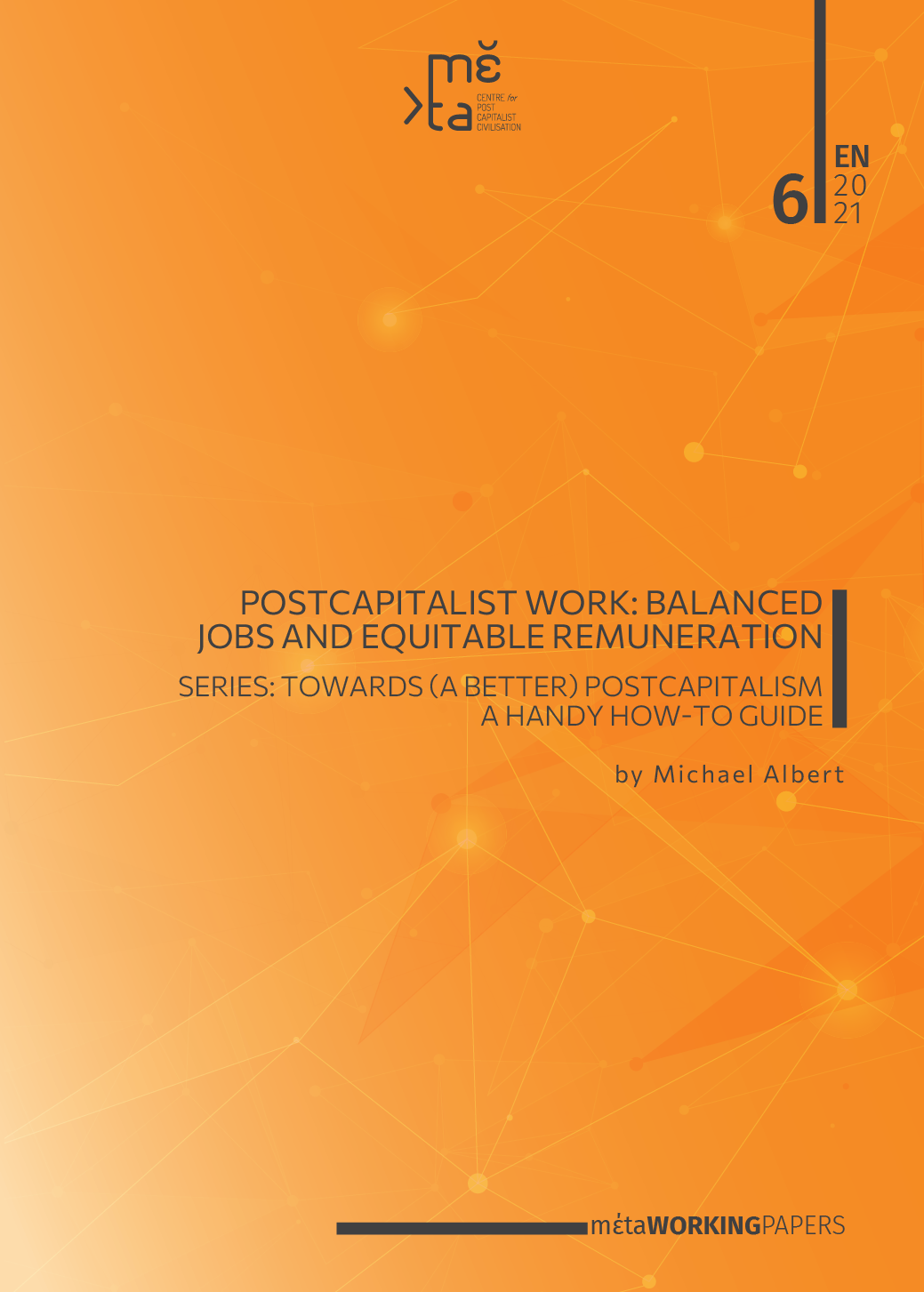
Postcapitalist Work: Balanced Jobs and Equitable Remuneration | Michael Albert
The Centre for Postcapitalist Civilisation, mέta, presents Michael Albert’s mέta Working Paper entitled Postcapitalist Work: Balanced Jobs and Equitable Remuneration (accessible here), part of the “Towards (a Better) Postcapitalism: A Handy How-To Guide” series under “Decision Making.”
DOI: 10.55405/mwp6en
mέta Working Papers’ series “Towards (a Better) Postcapitalism: A Handy How-To Guide” publishes solicited policy papers on aspects of how would a non-dystopian postcapitalism look like. The series focuses on three ‘pillars’:
Production | Allocation | Decision Making
i.e., how could/would postcapitalist production be like (and who would own the means of production), what shape would the allocation of goods take (and which alternatives to the market economy may be explored), and what would be the main tenets of postcapitalist decision making and democracy.
In this paper, Michael Albert addresses the first pillar: postcapitalist production/work.
(Earlier additions to the “Towards (a Better) Postcapitalism: A Handy How-To Guide” series include Professor Robin Hahnel’s paper on Participatory Planning and Michael Albert’s paper on Postcapitalist Decision Making.)
Michael Albert is a founder and current member of the staff of Z Magazine as well as staff of Z Magazine’s web system: ZCom. He is a member of mέta’s Advisory Board. Albert’s radicalization occurred during the 1960s. His political involvements, starting then and continuing to the present, have ranged from local, regional, and national organizing projects and campaigns to co-founding South End Press, Z Magazine, the Z Media Institute, and ZNet, and to working on all these projects, writing for various publications and publishers, giving public talks, etc. Albert is the author of 21 books. Most recently these include: No Bosses: A New Economy for a Better World (Zero Books, 2021), Fanfare for the Future (ZBooks), Remembering Tomorrow (Seven Stories Press), Realizing Hope (Zed Press) and Parecon: Life After Capitalism (Verso).


